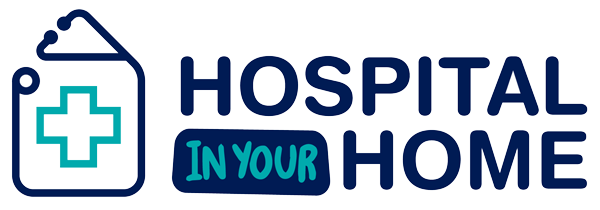Hospital Care at Home vs. Traditional Hospital Stays: A Comprehensive Comparison

The hospital care at home concept has gradually transitioned from a novel idea to a viable option for many patients and healthcare systems worldwide.
This innovative approach challenges the traditional norms of hospital stays and redefines the landscape of patient care in the 21st century.
By bringing the essential elements of hospital-level care to the comfort and familiarity of one’s home, it promises a revolution in how we perceive and receive medical treatment.
Understanding Hospital Care at Home
Hospital care at home, a model that allows patients to receive hospital-level care in their own homes, is not as new as some might think.
The model has its roots in the early 1990s but has seen significant evolution with the advent of digital health technologies.
At its core, it involves a range of services from acute care, post-operative care, to chronic disease management—all delivered outside the traditional hospital setting.
The success of hospital care at home programs often hinges on the sophisticated use of technology. Remote monitoring tools, wearable devices, and telehealth platforms play pivotal roles in ensuring that patients receive real-time, quality care.
These technologies not only facilitate constant communication between patients and healthcare providers but also enable vital sign monitoring, medication management, and immediate medical intervention when necessary.
Traditional Hospital Stays
The traditional hospital care model, characterized by in-patient stays within a hospital facility, has long been the cornerstone of acute and specialized medical treatment.
This setting provides immediate access to a wide range of medical professionals and advanced diagnostic tools. The benefits of in-hospital care are numerous, particularly for patients requiring intensive care, emergency surgeries, or access to high-tech medical equipment.
However, traditional hospital stays are not without their drawbacks. The risk of hospital-acquired infections, the psychological impact of long-term hospitalization, and the significant costs associated with in-patient care are notable concerns.
Additionally, the high demand for hospital beds, especially in times of medical crises like the recent global pandemic, has put unprecedented pressure on healthcare systems, highlighting the need for alternative care models.
Comparing Patient Outcomes
When it comes to comparing patient outcomes between hospital care at home and traditional hospital stays, the evidence is increasingly in favor of the former.
Studies have shown that hospital care at home can significantly reduce hospital readmission rates, lower the risk of hospital-acquired infections, and even decrease mortality rates for certain patient groups.
One intriguing aspect of hospital care at home is its ability to personalize treatment in a way traditional hospital settings might not be able to match.
The comfort of being at home, surrounded by familiar faces, can have a profound positive effect on a patient’s mental and physical well-being, thereby potentially speeding up recovery times.
Cost-Effectiveness
The economic implications of hospital care at home are compelling. By reducing the need for expensive hospital stays, this model can offer substantial savings for both patients and healthcare systems.
For instance, a study published in the Journal of the American Medical Association found that hospital care at home could reduce costs by approximately 30% compared to traditional hospital care.
Beyond direct costs, the indirect savings from reduced travel times, lower infection rates, and shorter recovery periods also contribute to the cost-effectiveness of hospital care at home.
Insurance companies and healthcare providers are beginning to recognize these benefits, gradually integrating home care options into their coverage plans.
Patient Satisfaction and Quality of Life
Patient satisfaction levels with hospital care at home tend to be remarkably high. The ability to stay in one’s own environment, maintain a semblance of normalcy, and have family members participate actively in the care process enhances the overall patient experience.
Quality of life improvements are particularly notable among chronic disease patients, who value the autonomy and comfort that home care provides.
Challenges and Limitations
Despite its many benefits, hospital care at home is not without its challenges. The model requires a robust logistical framework to ensure timely delivery of care, management of medical equipment, and coordination of healthcare professionals.
Additionally, not all patients or conditions are suitable for home care, particularly those requiring complex surgical interventions or intensive monitoring that can only be provided in a hospital setting.
In many regions, hospital care at home programs must navigate complex healthcare regulations and insurance reimbursement policies, which can limit their availability and accessibility.
Future Directions
The future of hospital care at home looks promising, with technological advancements playing a key role in its expansion.
Artificial intelligence and machine learning are set to enhance the precision of care, allowing for more personalized treatment plans and predictive health analytics.
Furthermore, as healthcare systems and insurance providers adjust to the changing landscape, hospital care at home could become a more integral part of patient care models.
Conclusion
The shift towards hospital care at home represents a significant development in healthcare delivery, presenting a robust alternative to traditional hospital stays.
Hospital in Your Home Australia has been at the forefront of this innovative model, expertly addressing the varied challenges of modern healthcare systems, from alleviating cost pressures to enhancing patient satisfaction.
Despite the hurdles, the profound benefits of hospital care at home underscore its capability to revolutionize patient care, establishing it as an exciting new frontier in our pursuit of more personalized, effective, and efficient healthcare solutions.
As we delve into this promising field, the opportunity to improve patient experiences and outcomes through hospital care at home has never been more attainable.
If you’re interested in learning how this revolutionary care model can benefit you or your loved ones, Hospital in Your Home US is committed to guiding you through every step of the process.
Contact us today to see how we can support you in successfully integrating hospital care at home, ensuring you receive the highest quality of care in the comfort and safety of your own home.
FAQs
What is Hospital Care at Home?
Hospital Care at Home refers to a healthcare model where patients receive acute care services in their own homes rather than in traditional hospital settings. This approach utilizes technology, remote monitoring, and visits by healthcare professionals to deliver safe and effective care.
How does Hospital Care at Home compare to Traditional Hospital Stays in terms of cost?
Hospital Care at Home can be more cost-effective than traditional hospital stays. It reduces the need for expensive hospital infrastructure and resources, and studies have shown it can lower healthcare costs for both providers and patients while maintaining quality care.
What types of patients are suitable for Hospital Care at Home?
Hospital Care at Home is best suited for patients with conditions that require hospital-level care but can be safely managed at home. This includes certain infections, chronic disease exacerbations, and post-surgical care, among others. Suitability also depends on the patient’s home environment and support system.
How does the quality of care in Hospital Care at Home compare to that in traditional hospitals?
The quality of care in Hospital Care at Home programs often matches or exceeds that of traditional hospital settings. These programs use technology and personalized care plans to provide comprehensive care, with studies showing similar or better outcomes in patient health and satisfaction.
What are the main challenges of implementing Hospital Care at Home compared to traditional hospital stays?
Implementing Hospital Care at Home faces challenges such as ensuring reliable technology infrastructure, training healthcare professionals for in-home care, and navigating regulatory and reimbursement frameworks. Additionally, patient selection and ensuring the home environment is suitable for care are critical considerations.
